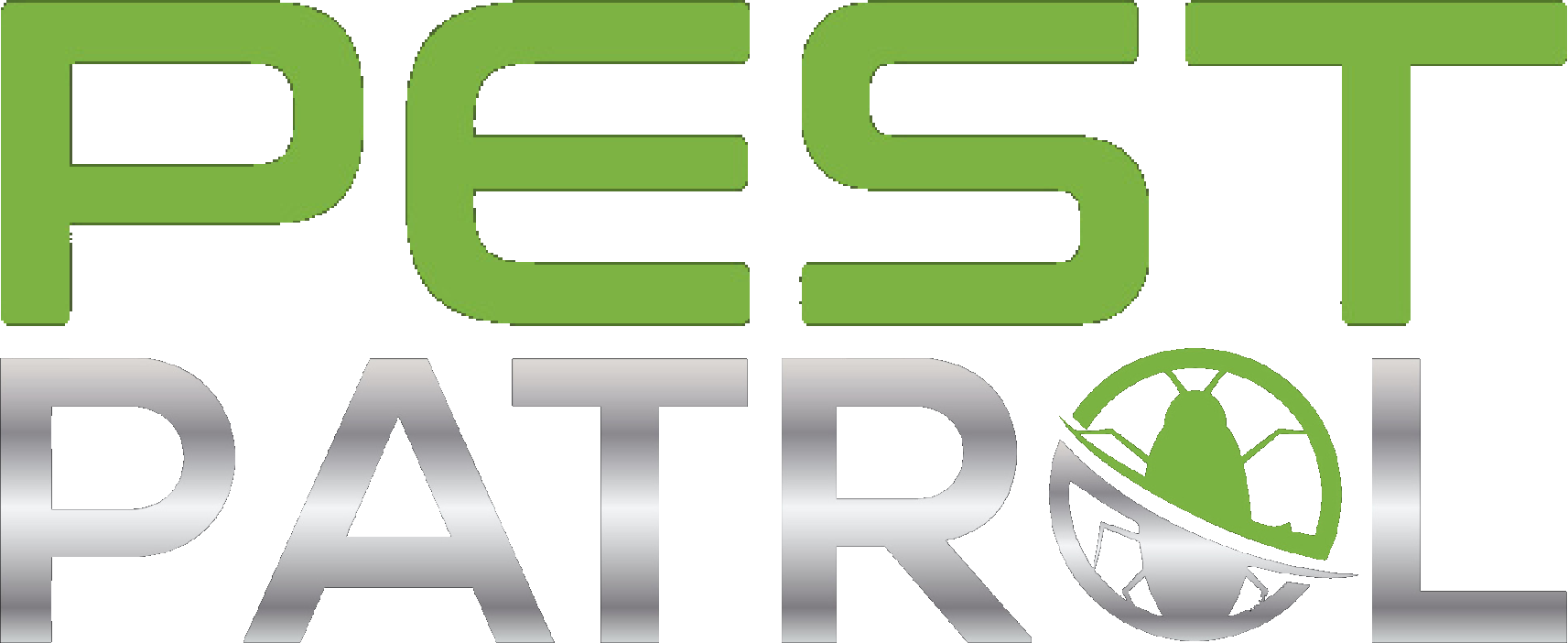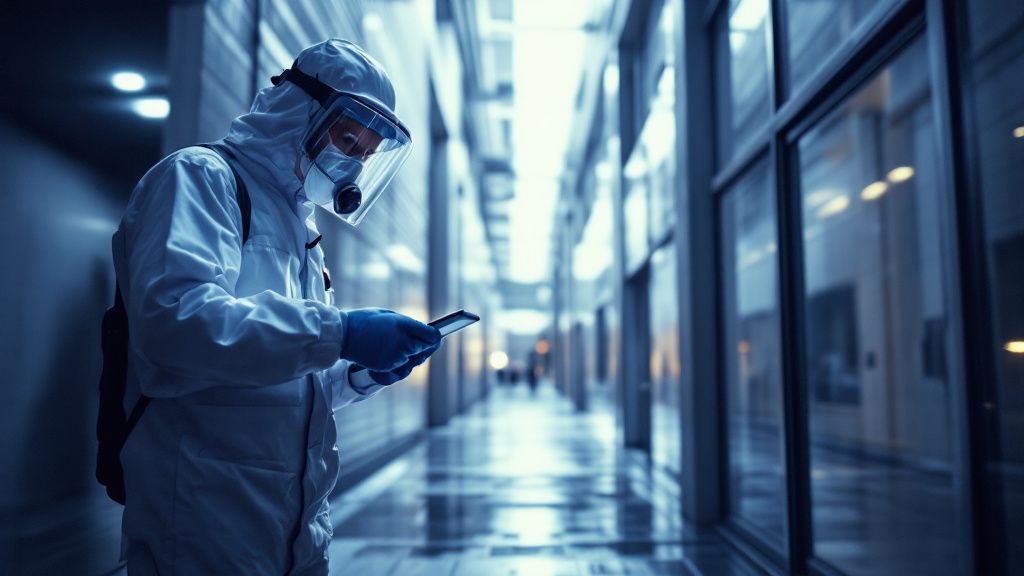Navigating the complexities of commercial pest control solutions can seem daunting, yet with the right strategies, you can effectively safeguard your premises. Commercial spaces often attract a range of pests due to the abundance of food sources and potential entry points. To master these solutions, you need tailored approaches that address both prevention and eradication. Begin by conducting a thorough inspection of the property to identify specific pest threats and vulnerabilities. Utilize targeted treatments that are not only effective but also environmentally friendly to ensure safety for both employees and customers. Regular monitoring and maintenance are crucial in staying ahead of potential infestations, transforming your commercial area into a pest-free environment.
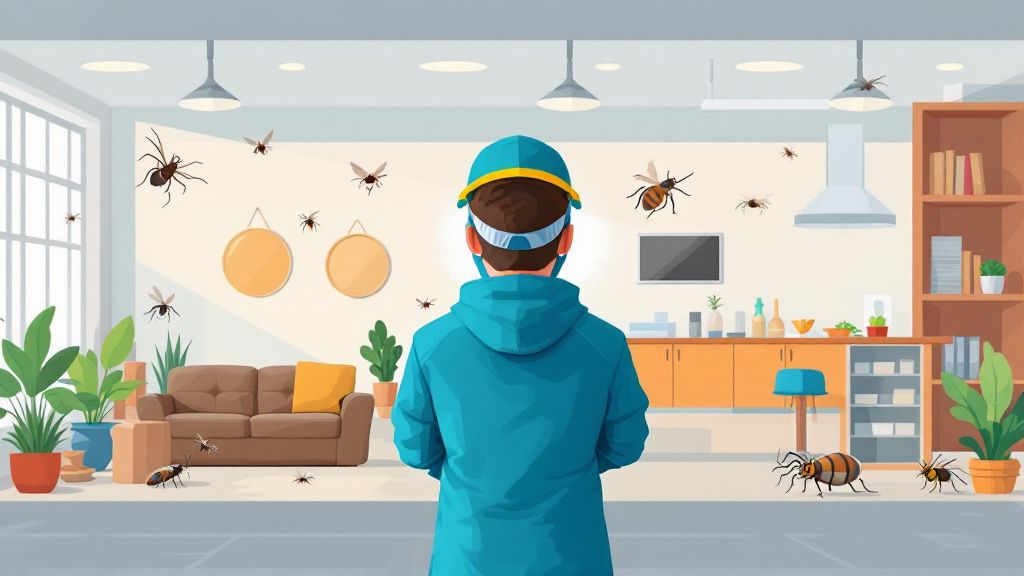
Understanding the Need for Commercial Pest Control
The presence of pests in commercial spaces poses a significant risk to businesses, impacting both reputation and health standards. Addressing this through a comprehensive pest control approach is crucial to maintaining a safe environment. The potential for contamination and property damage can lead to financial losses that outweigh the costs of implementing effective control measures.
Think of commercial pest control as a fortress protecting your business. Just like a sturdy wall defends against intruders, a well-planned pest control strategy acts proactively, ensuring unwanted intruders are kept at bay. This not only safeguards your inventory but also reassures clients and customers that they are engaging in a clean, hygienic space.
A successful pest control system requires regular assessments to identify new threats and adapt strategies accordingly. Pest behaviors change with the seasons, making it essential to stay on top of potential infestation patterns. By understanding these nuances, you can employ measures that preemptively tackle any issues before they escalate into significant problems.
Investing in commercial pest control reflects a commitment to quality and service excellence. It complements other business strategies aimed at maintaining high standards, a consideration essential to thriving in competitive markets. Businesses attentive to pest management gain not only operational efficiency but also inspire confidence among their stakeholders.

Identifying Pest Problems in Your Business
Recognizing the early signs of pest activity in your business is crucial to maintaining a safe and clean environment. Various indicators, such as droppings, gnaw marks, or unexpected smells, can suggest an infestation. Regularly inspecting key areas like storage spaces, kitchens, or entry points helps in early detection. These inspections are vital in safeguarding against more extensive and costly damages later.
To make the most of identifying pest problems, try implementing a routine monitoring system that includes staff training. Employees familiar with common pest signs can serve as your eyes and ears throughout the premises, pointing out potential issues as they arise. This collective vigilance supports quick intervention and preventative measures, essential for an effective control plan.
Documentation of any pest incidents or sightings is another crucial step in maintaining control over pest problems. Keeping detailed records allows you to track patterns in pest activity and effectiveness of the control measures in place. Reviewing these records regularly can inform adjustments to your strategy, leading to more efficient pest management practices.
Pest activity can often increase due to changes in business operations, such as deliveries or variable climate conditions. Being aware of these factors helps in better anticipating pest issues. Adaptability in your approach, combined with proactive monitoring, ensures that your business remains a pest-free zone, reassuring both employees and customers of a healthy environment.
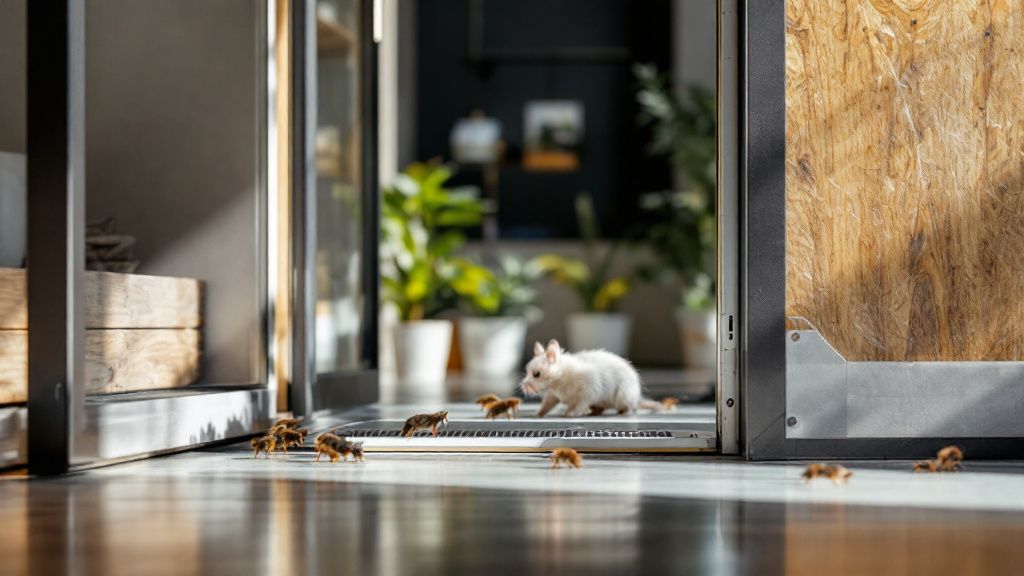
Preventative Measures for Keeping Pests at Bay
Implementing preventative measures is essential for keeping pests at bay in commercial environments. Start by ensuring all entry points, such as doors, windows, and vents, are properly sealed. This reduces the chances of pests sneaking inside. Regular maintenance of these barriers ensures that you are consistently one step ahead in the fight against infestations, creating a more robust defense system for your business.
One of the most frequently asked questions about pest prevention is how often should you conduct inspections. Regular inspections, ideally on a monthly or quarterly basis, allow for timely identification of pest threats. This routine vigilance enables you to address small issues before they become major infestations, helping maintain the integrity and safety of your business space.
Proper waste management is another crucial component of pest prevention. Ensure that trash is disposed of regularly in sealed bins to eliminate potential food sources for pests. Additionally, keeping your premises clean by addressing spills and crumbs quickly can significantly deter pest attraction. Adopting these practices promotes a cleaner, less inviting environment for pests.
Consider partnering with a professional pest control service to provide expert insight and tailored solutions. These specialists can offer guidance on the most effective preventive measures suited to your industry, ensuring your business remains pest-free and compliant with health regulations. A proactive approach in pest management safeguards your operational efficiency and reputation.

Choosing the Right Pest Control Method
Selecting the right pest control method for your business is crucial to effectively managing infestations while minimizing impact on your operations. Begin by understanding the specific needs of your industry and the common pests you may encounter. Whether opting for chemical treatments, traps, or integrated pest management, ensure the method aligns with your business values and health standards, safeguarding both employees and clientele.
In the words of renowned pest control expert Dr. Susan Blackwell, “Effective pest management is about choosing solutions that work harmoniously with your environment.” This highlights the importance of considering the unique conditions of your commercial space, as well as potential environmental impacts. Tailoring your pest control strategy based on these factors enhances its effectiveness and sustainability.
Consulting with a professional pest control service can offer additional insights and customized solutions. Professionals have the expertise to recommend methods that are both efficient and compliant with industry regulations. By collaborating with experts, you ensure the wellbeing of your business environment and maintain the trust of your customers. The right pest control approach not only resolves current issues but also prevents future ones, supporting overall business success.
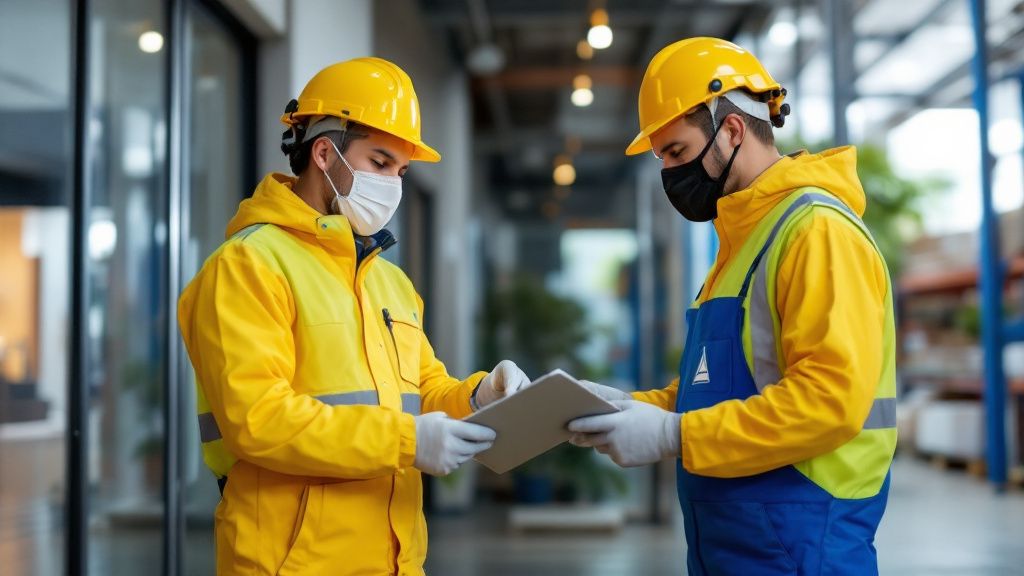
Hiring Professional Pest Control Services
Hiring professional pest control services is a strategic move for any business aiming to maintain a pest-free environment efficiently. Professionals bring a wealth of experience and knowledge, allowing them to identify and treat pest problems accurately. With their expertise, you receive tailored solutions that cater to your specific needs, ensuring comprehensive protection and peace of mind for both your business and customers.
In the next few years, the demand for technologically advanced pest control services is likely to increase significantly. As technology evolves, professional pest control companies are expected to incorporate more sophisticated tools and methodologies, such as remote monitoring and data analysis, to enhance their service offerings. This evolution will provide businesses with more efficient and responsive pest management options.
Engaging with professional services also means your business benefits from preventative expertise, reducing the risk of future infestations. Continuous monitoring, regular inspections, and ongoing advice are part of the package, contributing to a proactive approach that safeguards your business’ reputation. With professionals on your side, you can focus on the core aspects of your operations while they take care of pest management.
Ultimately, choosing professional pest control services translates to better compliance with health and safety regulations. Experts are well-versed with the latest industry standards and ensure your business meets all necessary legal requirements. This attention to compliance not only ensures safety but also enhances your business’s credibility in the eyes of clients and regulatory bodies.
Legal and Compliance Considerations
Adhering to legal and compliance requirements in commercial pest control is crucial for any business. These regulations ensure that pest management practices align with health and safety standards, protecting both employees and customers. Staying informed about the latest legal requirements helps you avoid penalties and maintain a good standing with regulatory bodies. It’s essential always to be proactive about compliance within your operational framework.
Documenting all pest control activities is a key compliance strategy. Maintaining detailed records of treatments, inspections, and any chemical usage ensures transparency and accountability. These records are invaluable during audits, providing clear evidence of your commitment to following legal requirements. They also serve as a reference point for future assessments and planning.
Understanding the rights and responsibilities outlined in contracts with pest control providers is another vital aspect. This knowledge helps in fostering a collaborative relationship where both parties are clear about expectations and obligations. A well-negotiated contract protects your business from potential legal disputes, ensuring peace of mind and continuity in pest management efforts.
